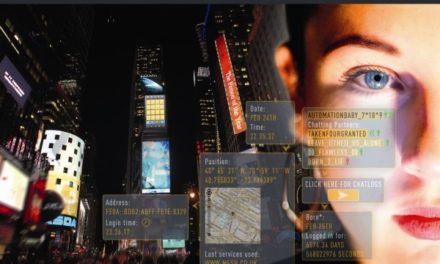Mlada Fronta
Polygon
Artoffact Records
Rémy Pelleschi has never felt particularly restrained by genre. His long-running solo project Mlada Fronta’s ten CD retrospective Every Thing served as a particularly instructive lesson on the various ways directions an artist can take electronic music, bouncing between strident rhythm and textural ambience and winding its way through techno, IDM, industrial, and beyond. Pelleschi’s first album of original material in nine years speaks to that creative restlessness but in an intriguingly counterintuitive way: for all it’s various twists and tricks, Polygon is as close to an accessible dance record as Mlada Fronta has ever come.
If you wanted to trainspot this record’s genealogy you could probably trace its persistent drums and throbbing bass back to the same Italo and Hi-NRG sounds that inform much of today’s synthwave music. Indeed, songs like “Cop | Magnum bass” and “Night Run” share plenty with outrun electro, with gated reverb aplenty on the percussion and melancholic synth breakdowns delivered at highway speeds. This isn’t 80s throwback music by any means though, as Pelleschi keeps his sound design and production distinctly modern, invoking body techno on the clamorous “Strict Dress Code” and even a bit of Gesaffelstein’s mid-tempo bump on “Klm”. The common ground is generally Rémy’s capacity for clever arrangement, wringing the most of each loop or lead sound’s potential applications before sliding comfortably on to the next.
While I doubt very much that naming the album Polygon is specifically meant to conjure Richard D James’ most notable side-project, there’s more than a little bit of Artificial Intelligence in its DNA as well. The pinging synthlines and stabs that carom around the stereo spectrum on “Polygon 1” are entirely reminiscent of Warp Records’ 90s moves towards the transfiguration of electronic dance music, a mood reinforced by the use of a breaksy drums and strangled organ sound on “Dfg”. “Osc-A” and “Sdk” flirt heavily with those sounds in the zippy and uptempo 16th note loops that each employ but always stop short of full on abstraction; while packed with hints and references to Pelleschi’s own considerable work as an experimentalist, these songs keep themselves firmly planted in less theoretical territory.
Artists that confound expectations are often held to odd double standards; while listeners might praise their exploratory work as fearless and avant garde, moving towards the dancefloor and approachability can be perceived as a cop-out. If thoughts of that backlash ever occurred to Rémy Pelleschi, you won’t hear it on Polygon, a record that betrays the confidence of the producer and artist behind it within each of its many musical choices. It may not have been what anyone was honestly expecting from Mlada Fronta after such an extended absence, but really, if it had been exactly what you theoretically imagined, wouldn’t you have been a little disappointed?







Trackbacks/Pingbacks